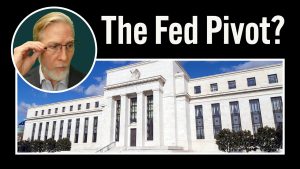What are the characteristics of a hard money loan, when do they make sense for borrowers, and why are they called “hard?”
Objectives
- Dispel the myth of why it’s called “hard” money.
- Learn what characteristics are typical of hard money loans.
- Consider situations when hard money loans make sense.
Listen to This Article
What puts the “hard” in hard money? A common misconception is that hard money loans are described as hard money because of their relatively high cost, at least in comparison with conventional loans. In point of fact, hard money is a reference to physical assets, and more often than not, the hard asset of choice is real estate.
Think Like a Hard Money Lender
Hard money lenders decide whether or not to originate a loan based almost exclusively on the quality or the potential of the real estate. Any consideration given to the credit quality of the borrower is secondary at best, a very distant second. The hard money lender’s logic here is binary, considering only two possible outcomes. If things go as expected, which is preferable, the borrower will pay me back as agreed. On the other hand, if the borrower defaults, I’ll foreclose on the property and sell it. Either way, I’m covered. I’m going to make a profit on my investment.
What Are Hard Money Loans?
Hard money loans are generally short-term loans, typically lasting from six months to three years. They’re used primarily by real estate investors and developers when they must act quickly on an opportunity or when conventional lenders aren’t willing to provide the needed financing. Their objective may be to acquire the property quickly with a hard money loan and then refinance into a conventional loan. Maybe they’re going to acquire and rehab the property with the intention of selling it – a fix-and-flip – or maybe they’re funding a ground-up construction project, again with the intention upon completion of either refinancing into a conventional loan or selling it.
The key here is that hard money loans are not long-term financing. The borrower’s got a business plan they’re going to see through to a successful conclusion in relatively short order. They need the money now and their plan will enable them to pay it back soon. In a nutshell, that’s the reason hard money loans exist.
Three Ways Hard Money Saves the Day
Hard money lenders are an alternative source of funding for borrowers who cannot obtain the loans they need from traditional sources like banks. There are generally three situations when this may be the case.
- The borrower may be under a time constraint. Hard money loans are often approved in days, if not hours, while conventional financing can take weeks or sometimes even months to process due to more stringent underwriting requirements.
- The borrower may have credit issues. Hard money loans are based primarily on the value of the property, so credit scores and financial history are less important. Hard money lenders are more likely to work with borrowers who have poor credit or otherwise do not meet the strict guidelines of traditional lenders.
- The collateral or the project doesn’t fit in a conventional lender’s credit box. Banks typically have certain criteria they apply to every prospective real estate loan, such as acceptable property types, locations, and occupancy rates, as well as more technical considerations such as loan-to-value and debt-service coverage ratios. If you’d like to take a deeper dive into LTV and DSCR, watch our video on these topics. They’re the primary measures used by lenders to gauge their exposure to risk when underwriting loans for investment properties.
When the Bank Says, "It Just Doesn't Fit"
Elaborating on that last point, those underwriting criteria, when taken in their entirety, are what bankers refer to as their credit box. It’s a metaphor that basically represents their appetite for risk. They’ve spent a lot of time thinking about it, held countless meetings to discuss it, compared it against banking regulations, and juxtaposed it with the need to provide returns to their investors. Once it exists, things become very black and white. If a deal doesn’t fit in their credit box, sorry, it’s a pass.
Even though you’re always going to pay more for a hard money loan, there are situations where it not only makes sense – where it pencils – but is in fact the one and only way to make a deal work. In those cases, it’s a no-brainer. There’s nothing hard about that.



















